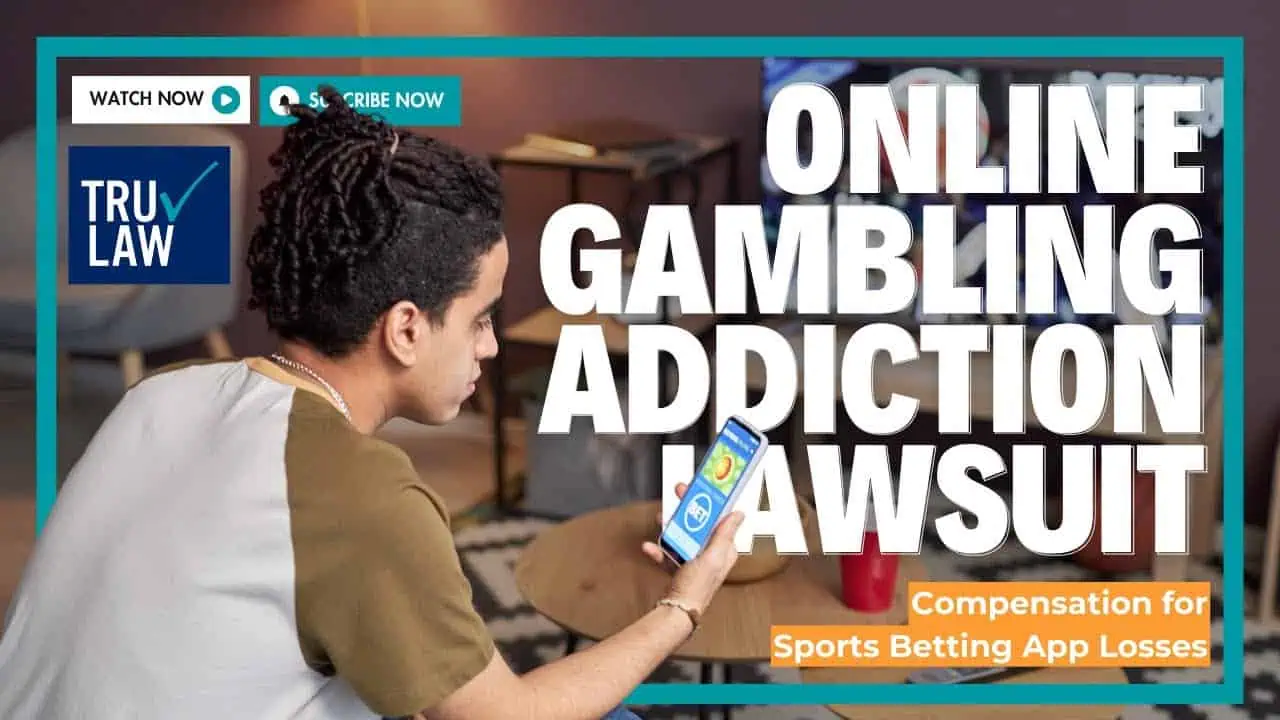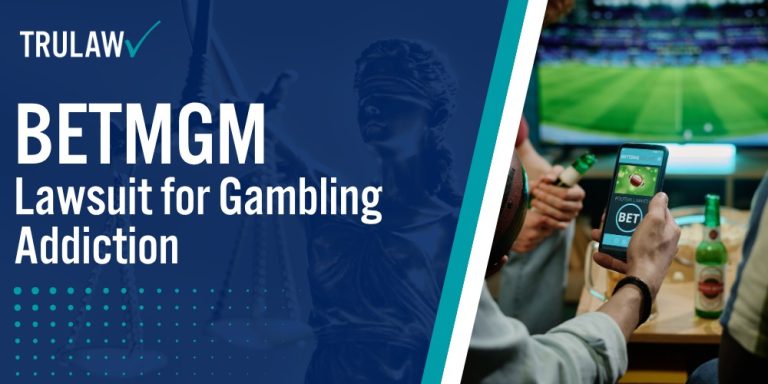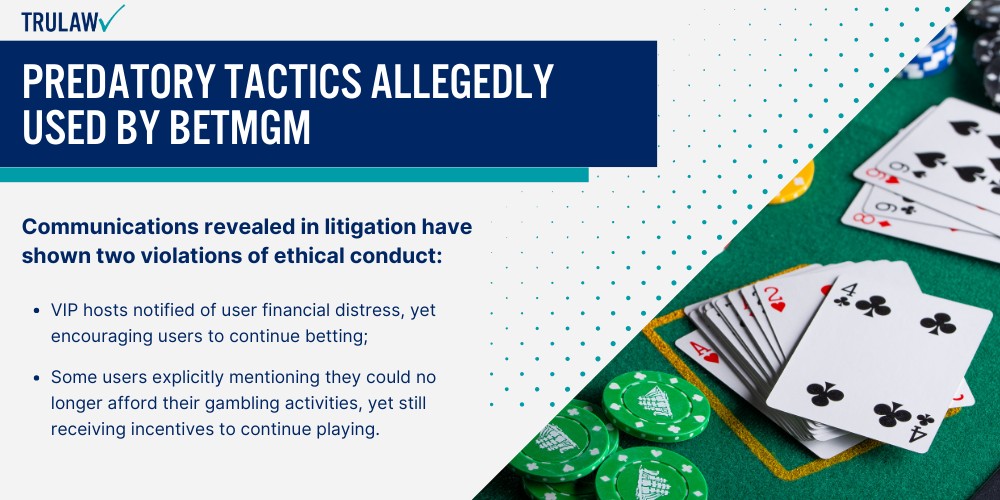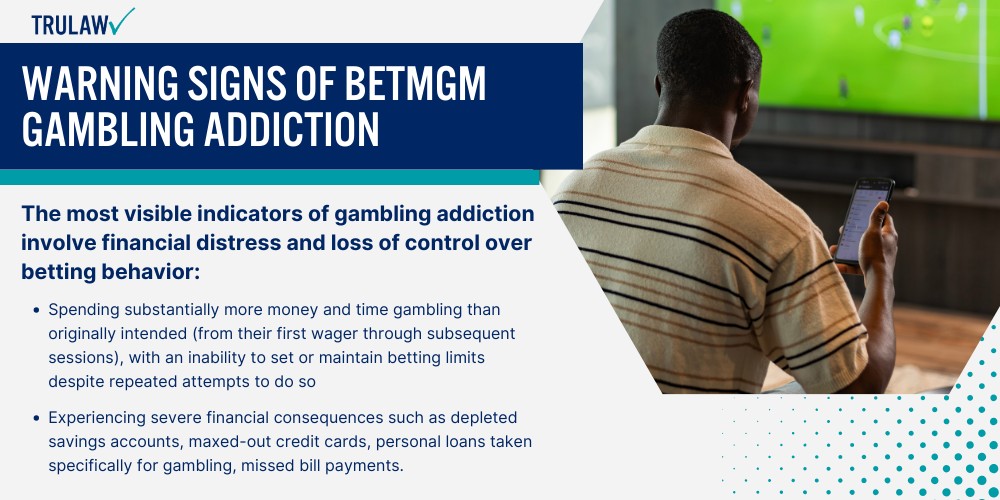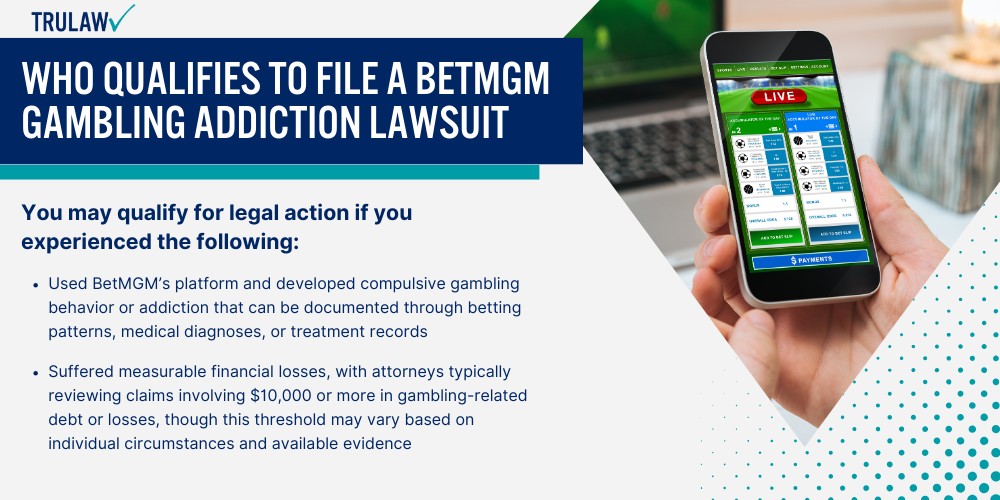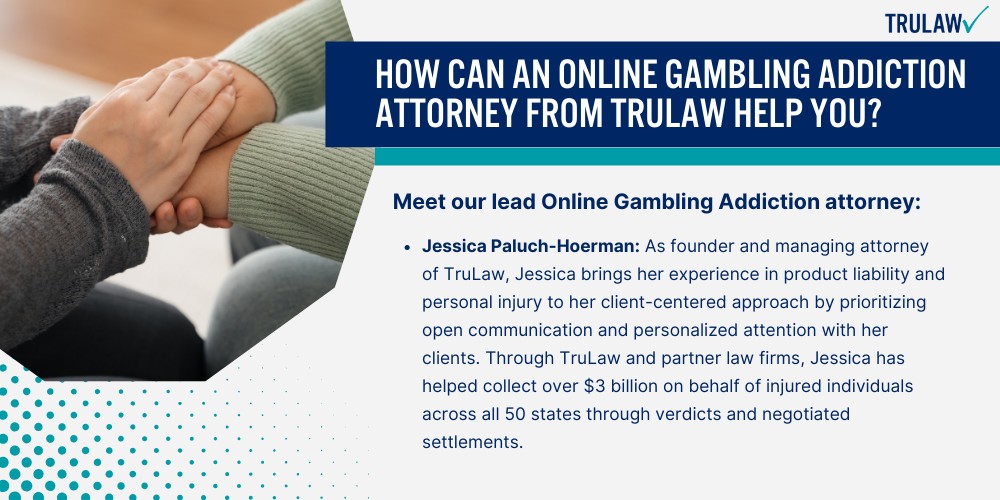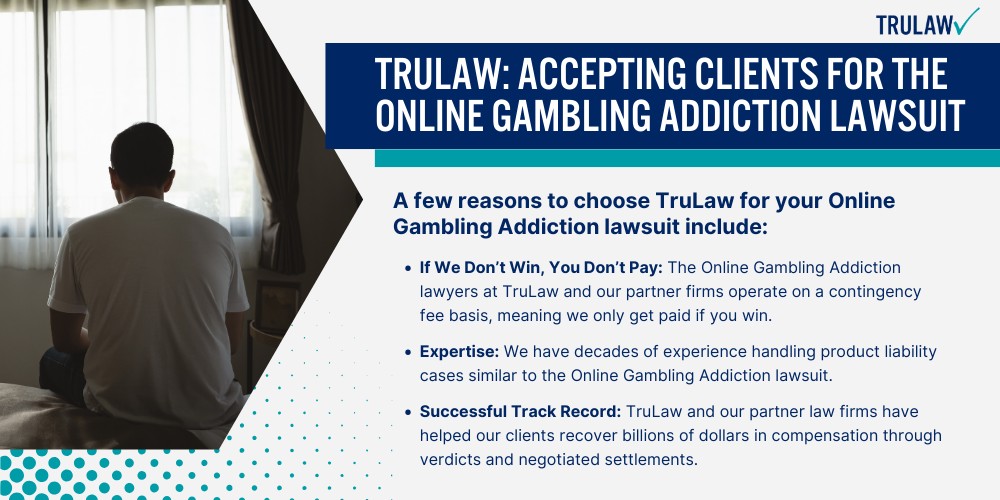The rise of mobile sports betting platforms has transformed gambling from an occasional casino visit into a constant presence in daily life.
The plaintiff in numerous cases claims BetMGM, as one of the industry’s major players, has faced allegations that its business model prioritizes profit over player welfare by employing sophisticated tactics designed to encourage compulsive gambling behavior.
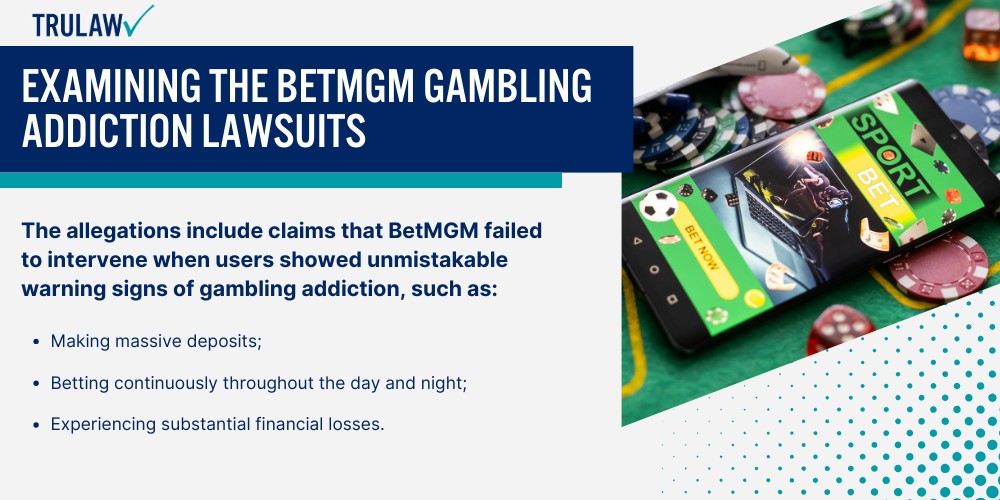
These lawsuits claim that the platform used manipulative app design, aggressive marketing strategies, and personalized VIP host programs to target vulnerable users who showed clear signs of addiction.
TruLaw partners with gambling addiction litigation leaders to help affected individuals seek compensation for the harm they’ve experienced while using online betting platforms like BetMGM.
What Is BetMGM and How Does It Operate?
BetMGM stands as one of America’s largest online sports betting and casino platforms, jointly owned by MGM Resorts International and Entain.
The platform currently operates in 24 states (plus Washington, D.C., and Puerto Rico), pursuant to state licensing, offering sports betting services with additional online casino gaming available in select markets.
BetMGM holds a 14% market share in gross gaming revenue across its active markets including significant presence in the Michigan market (where the Michigan Gaming Control Board oversees compliance) with particularly strong performance in online casino games at 22% market share.
The platform provides users with 24/7 access to sports betting through mobile applications using procedures that create constant gambling availability that traditional brick-and-mortar casinos cannot match.
This follows the 2018 Supreme Court decision in Murphy v. National Collegiate Athletic Association, which struck down the Professional and Amateur Sports Protection Act (PASPA) and allowed individual states to legalize sports betting within their borders.
The subsequent rapid expansion of legal sports betting has been accompanied by a corresponding surge in gambling-related problems, with calls to problem gambling helplines doubling or even tripling in some states.
BetMGM’s business model combines proprietary technology from Entain with MGM Resorts’ extensive land-based casino network through contract arrangements, creating an integrated gambling ecosystem.
BetMGM reported substantial growth through March 2025 and beyond, with first-half net revenue up 35% year-over-year and strong player engagement metrics showing a 38% increase in average monthly active users.
However, this explosive growth has raised questions about whether adequate regulations and safeguards exist to protect vulnerable users from developing serious gambling problems.
Core Allegations in BetMGM Addiction Lawsuits
BetMGM as defendant in lawsuits against online sports betting platforms faces allegations of a pattern of exploiting users with gambling addictions through deliberate design choices and targeted marketing strategies.
These legal claims assert that companies identified individuals exhibiting clear signs of problematic gambling behavior, but instead of implementing protective measures (after noting these patterns), they assigned VIP hosts to encourage continued betting through bonuses, promotional credits, and personalized communications.
The allegations include claims that BetMGM failed to intervene when users showed unmistakable warning signs of gambling addiction, such as:
- Making massive deposits;
- Betting continuously throughout the day and night; and
- Experiencing substantial financial losses.
Lawsuits contend that the platform’s sophisticated behavioral tracking systems could identify at-risk users but used this information to deepen their engagement rather than offer help or implement protective limits, constituting a breach of responsible operator standards.
A major legal development occurred in April 2025 when the U.S. Court of Appeals for the Third Circuit dismissed the case of Antar v. BetMGM following a motion by the defendant.
Sam Antar (who claimed BetMGM exploited his gambling addiction resulting in over $24 million in wagers) argued that VIP hosts knowingly encouraged his compulsive gambling despite awareness of his problem and refused to implement limits.
The split decision circuit court concluded that:
- BetMGM had no “duty of care” under New Jersey law to prevent compulsive gamblers from betting; and
- Determining how much of Antar’s losses resulted from the casino’s actions versus his own gambling addiction presented an improbable balance between causation and individual responsibility – creating “almost metaphysical problems of proximate causation.”
While this ruling represents a setback for gambling addiction claims following proceedings consistent with appellate standards (though the split decision reflected dissent regarding the duty-of-care interpretation), ongoing reconsideration of similar claims in alternative jurisdictions does not preclude all future litigation.
As further proceedings develop in various jurisdictions through oral arguments and cases remanded for reconsideration, attorneys continue to review claims based on:
- Different legal theories;
- Varying state laws; and
- Evolving evidence about the extent to which online platforms deliberately exploit addictive behaviors.
The legal landscape surrounding gambling addiction liability remains in development, with courts and legislators grappling with how traditional duty-of-care principles apply to technology-enabled gambling.
If you or a loved one developed a gambling addiction while using BetMGM and suffered substantial financial losses, you may be eligible to seek compensation.
Contact TruLaw using the chat on this page to receive an instant case evaluation and determine whether you qualify to join others in filing an Online Gambling Addiction Lawsuit today.
